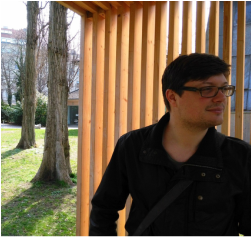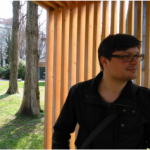
CMSI Lecture: Pieter Vermeulen
Event date: Thursday 24 March 2016, 5 – 6.30 p.m.
Location: Faculty of Arts and Philosophy, Blandijnberg 2, Faculty Room (first floor, right above the main entrance)
“Downscaling the Future: Literature after the Space Program”; given by Prof. Pieter Vermeulen as part of the Questions of Scale in Contemporary Literature and Criticism symposium
Abstract
This presentation tracks how a number of recent literary works code the rise of neoliberalism since the 1970s as a question of scale and affective disorientation. Neoliberalism is marked by a rhetoric of diminishment that emphasizes small states, downsizing, suppressed wages, “realistic” social demands, shared sacrifices, and injunctions to get “lean” and “nimble”; as Wendy Brown, among others, has shown, “neoliberalism’s stealth revolution” makes larger-scale social imaginaries strictly unavailable. The works I discuss address the affective malaise that besets this downscaling of life and the continuing yet increasingly unrealistic appeal of larger-scale projects by associating the possibility of alternative social imaginaries with the memory of the heroic age of space flight, which peaked in 1969 and officially ended in 1972, just as neoliberalism took off. I look at Margaret Lazarus Dean’s work of creative nonfiction Leaving Orbit, which codes the transition from the heroic to the shuttle age as a process of both encroaching neoliberalization and downscaling, and Norwegian writers Johan Harstad’s novels Hässelby, 172 Hours on the Moon, and Buzz Aldrin, which track the unraveling of the European welfare state by interrogating different generational memories of the moon landing. For both writers, the gap between the diminishments of everyday life and the unavailability of larger-scale imaginaries registers as negative affect and shame—an affective malaise that marks the generation born shortly after the end of the space program.
Bio
Pieter Vermeulen is an Assistant Professor of American and Comparative Literature at the University of Leuven. He was earlier an Assistant Professor at the University of Stockholm. He works in the fields of critical theory, the contemporary novel, and memory studies. Prof. Vermeulen’s first book, Geoffrey Hartman: Romanticism after the Holocaust, was republished in paperback by Continuum in the spring of 2012. He has just published a second monograph, entitled Contemporary Fiction and the End of the Novel: Creature, Affect, Form, on the paradoxical productivity of intimations of the end of the novel in early-twenty-first-century fiction. The book discusses the work of, among others, J. M. Coetzee, Teju Cole, Lars Iyer, Hari Kunzru, Dana Spiotta, and James Meek, and was published by Palgrave Macmillan in January 2015. Prof. Vermeulen is also a co-editor of six volumes: two on the relation between literature and cultural identity, special journal issues on the work of Theodor W. Adorno and on the interrelations between Bildung and the state, on the methods and forms of world literature (entitled Institutions of World Literature, published by Routledge), and on the notion of creatureliness (for the European Journal of English Studies). He has recently finished a seventh volume, on recent developments in memory studies, which will be published by Berghahn later this year.
All are welcome. Admission is free, and registration is not required. For more information, please contact Holly Brown.

